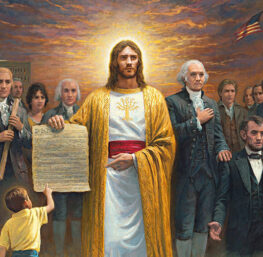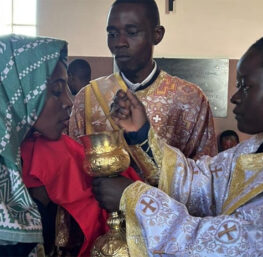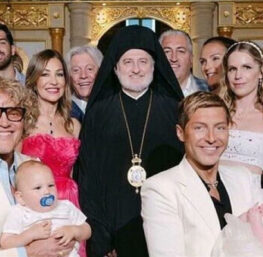BOSTON (AP) — Churches and other religious organizations would be required to disclose their finances like other nonprofit groups under a bill overwhelmingly approved by the state Senate on Wednesday.
Supporters of the bill, which has met opposition from the Catholic church and other religious denominations, say there’s no reason to exempt religious groups.
They say secrecy helped the Roman Catholic church in Massachusetts hide the burgeoning clergy sexual abuse scandal from public view, even as church officials shuffled abusive priests from parish to parish.
One way to prevent a repeat of the scandal is to bring the finances out into the light, backers of the bill said.
“We have a law that enables that darkness,” said state Sen. Marian Walsh, D-Boston, chief sponsor of the bill, which was approved 33-4 in the Senate. “Moral transparency and financial transparency are inextricably linked.”
Critics and parishioners have demanded greater transparency since the Boston Archdiocese began paying out sex abuse settlements. The sexual abuse crisis that struck the church worldwide started with the release of court documents in Boston in 2002.
Protestant and Orthodox denominations have also lined up to oppose the legislation, saying it would allow the government to intrude on private affairs of the church.
The House has yet to take up the bill, but plans to do so, according to a spokeswoman for House speaker Salvatore DiMasi. The Legislature ends its formal session on Nov. 16, but pending bills will carry over into the new year.
Boston Archbishop Sean O’Malley last month pledged “full disclosure” of the archdiocese’s finances, including the sources of all clergy sex abuse payments and the fiscal health of every parish, comparing the self-imposed rules to the disclosures required of public corporations.
Critics applauded the move, but said voluntary disclosures aren’t good enough.
Under state law, charitable organizations are required to file the reports to show how the money donated to the groups is being spent.
Terrence Donilon, a spokesman for the archdiocese, issued a statement after the vote criticizing the Senate for pushing through the measure.
“We oppose the legislation. It crosses church-state lines and is an affront to the constitution,” he said. “If passed, this legislation will cost the Archdiocese $3 million to implement. What programs would they like the Archdiocese to cut?”
Other religious leaders said the bill could put financial strains small, struggling congregations by requiring every congregation, Christian, Jewish, Muslim and others, to pay for financial audits and fees to report their finances to the Attorney General.
The Rev. Dr. Diane C. Kessler, executive director of the Massachusetts Council of Churches, criticized the Senate for rushing the bill to the floor for a vote on the same day that they debated a complex overhaul of the state’s health care system.
“It is ironic that those advocating transparency would resort to these tactics which are far from transparent,” Kessler said in a statement.
Senators said the bill wasn’t meant to punish religious groups, but to put them on an equal footing with the state’s other 30,000 registered charities such as the Little League that must file the disclosure reports.
They also said the bill was designed to protect people who made donations to the groups to make sure the money was being spent responsibly.
“All of those institutions and the Catholic church as well are still going to exist. Are they going to have to be a little more open? Yes,” said Sen. Brian Lees, R-East Longmeadow. “Why would you want to hide what people are giving you? What’s the purpose of that?”
The new disclosure policy outlined by O’Malley was developed by the archdiocese’s Finance Council, an advisory committee made up of church officials and lay people. In the first quarter next year, the archdiocese will release consolidated audit reports for 2004 and 2005, including “full disclosure and explanation of the Archdiocese’s organizational structure.”
Also in early 2006, the archdiocese plans to reveal the sources of all payments to sex abuse victims. In November 2006, each parish will release an unaudited report of its finances. External audits will be completed on each parish every three years.
The archdiocese is also in the midst of a consolidation that includes closing about 80 parishes. Some parishes have staged around-the-clock vigils in protest, saying their churches were still vital.



